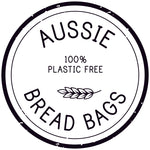Ever considered starting your own compost heap? Or perhaps a worm farm could help you deal with your food scraps? In this blog, I'll break down not only the different types of composting you can do in your own backyard, no matter how small it is, but the benefits you provide the planet by having one!
What is composting?
Composting is the breaking down of organic matter such as food scraps, yard waste and paper materials.
There are 3 ways to compost:
1. Aerobic - organisms needing oxygen that break down the natural matter.
2. Anaerobic -
organisms NOT needing oxygen that break down the natural matter.
3. Vermicomposting - using worms to break down the natural matter for you and then using their waste (poop) in a way you may have never thought possible.
Why should you compost?
Give food a purpose:
Did you know that
Australian households send 3.2 million tonnes of edible food to landfill each year? The Australian Government estimates that as a nation we waste about $20 billion in food annually. Crazy right?! Fancy living in a world where we work hard to grow and farm food, harvest it, sell it, transport it, retail it, and purchase it only to throw it in the bin instead of consuming it? So strange!
Release less harmful toxins into our atmosphere:
The food waste along with other organic materials sent to landfill is another way methane is produced. And most of us know how this potent greenhouse gas is bad for our atmosphere, when released unburned! Learn what Methane is here and why it's bad for our environment if you're not sure.
Benefits of Composting.
-
conserve landfill space for items that can't break down naturally and may actually need it
- reduce the amount of human induced methane gas produced into our atmosphere
- have a naturally made product that can add minerals back into your soil for better soil quality
- no need to add chemicals to enhance soil condition
- quality soil also holds water for longer therefore reduced your need for water
- if using worms, worm castings (poop created by the worms after eating your scraps)
contain five times more nitrogen, seven times more phosphorus and 11 times more potassium than ordinary soil
- frees up bin space and can save you dollars on garbage removal/drop off to tip
Simple composting options to get you started:
- Start an indoor composting bin.
To collect the organic matter prior to going outside (saves you going outside every 5 minutes). Brands such as Bokashi, Ecobin are popular, but shop around for something that suits your needs and budget.
- Start an outdoor composting bin.
Tumbler bins are popular because they're very simple to use. There are so many brands out there, so I'd just suggest to shop around for what suits you best!
- In-ground composting.
I usually recommend an in ground compost once you've got the hang of composting. There is a bit of an art to composting well to get the desired effect and if you don't get it right, you'll just end up with a stinky pile of muck. Once you know what you're doing, research, set it up and go for it!
- Worm farming.
Again there are plenty of brands to select from when purchasing a worm farm, so have a look around. It's also a good idea to check for second hand! There's always people selling both worm farms and composters so you might be able to score one that way for cheap of even free!
Once you've got a farm, watch this great simple video on how to care for your worms well! Remember they are the pet that helps you with the chores, gives your garden a treat and is involuntarily helping to save the environment so take care of them!
If you are just not into composting or worm farming, you can always consider sending your organic waste to someone who will use and appreciate it.
Sharewaste is a great program that I use. By downloading the app to your phone, you then have access to lots of people who are willing to take your organic/food waste for their compost, or food waste for their chickens and or worm farms.
